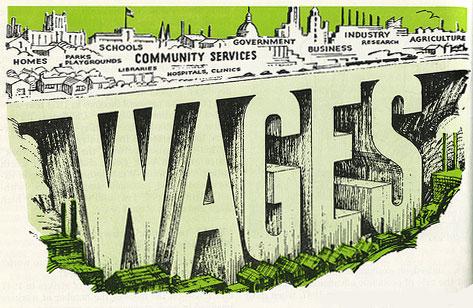Seldom have we come across
individual who does not respond to appreciation. In fact, we consider such
people as aberrations. Yet, how many of the managers are sensitive to this
issue? Their number is hardly encouraging. Most of them do not consider it to
be a major part of their job today. The work schedules have become stiff with
the increasing demands on productivity and employees are expected to act in a
manner that benefits the company. Resources are thin, budgets tight and in this
training is the first casualty. This implies that an employee has to look
within, rather than look up to the organisation to enhance his/her skills.
The business environment today is
characterised by speed and technology. Personal interface by the managers has
been replaced by computer interface. The minimum personal interaction that a
manager has with an employee is devoted to finding out the business details,
and there is hardly any room left for the manager to find out whether an
employee has done an exceptionally good job while carrying out his “task”. The
blessings of technology are a mixed bag.
In his book, Mega Trends, John
Naisbett gives an excellent account of the changing work environment. He says
that our work environments become more and more technical, there will be a
greater employee need to become more personal and humane. He calls this
phenomenon high-tech/high-touch. The irony is that all this is happening at a
time when the aspiration of the employees is to have a greater meaning in their
lives, particularly in the context of their job.
The paradox of the situation is that
what motivates people most takes so relatively little to do-just a little time
and thoughtfulness for fresher. In a recent research study of 1500 employees
conducted by Dr. Gerald Graham, personal congratulations by managers of
employees who do a good job were ranked first among 67 potential incentives
evaluated. Second on the list was a personal note for good performance written
by the manager.
Eve information can be rewarding.
Numerous studies indicate that open communication was ranked as the most
important reason that the employees reported for staying with their present jobs.
Everyone wants to know “what’s going on?”- especially, as it affects them, and
merely telling them is motivating. When we ponder over this aspect, the
question that arises is whether is it really that difficult to tell people
that?
When it comes to rewards, most
managers perceive that the only thing that motivates their employees is money
and more money. While money can be a significant way of letting employees know
their worth to the organisation, it may not always be the sole sustaining
motivational factor to most individuals. In other words, money is important
enough, and yet, may not be the be all or end all of employee motivation. More
often than not, non-pecuniary factors may equally motivate employees to do
their best on the job.
The most limiting reason for money
to be a motivator is that in most organisations, performance reviews and
corresponding salary increases occur only once in a year. To motivate
employees, performance need to reward the achievements and progress made
towards the goals by employees more frequently. Regular reward-not necessarily
monetary-needs to take place on almost daily basis.
The intangibles matter a great deal to an
employee. It may be small yet significant for the workers that they are being
appreciated for the work they’ve done, being kept informed about things that
affect them and have a sympathetic manger who takes time to listen. None of
these intangibles are very costly, but they all do take the time and
thoughtfulness of a manger who tends to be caring. By being a little creative,
a manager can find out what specifically motivates his/her employees and
ignites the spark in them. His/her job is to make those things happen. When one
of the employees has put in extra effort on a key project or achieved a goal that
has been mutually set, he/she should recognise the achievement fittingly in a
unique and memorable way. Managers will find that the more creative and unique
they are with the reward, the more fun it will be for both of them. The
examples can be only limited by the manager’s imagination. It could be sending
a birthday gift to the employee’s beloved daughter to footing the bill of the
family dinner. The manager can grant employees, who have performed
exceptionally well, a pass for three-day weekend.
Recognition and rewards can be very
powerful motivational tools. It is quite intriguing to realise that a simple
and sincere recognition with minimum cost, paperwork and administration can
impact employees in a profound way. At Walt Disney, one of the company’s 180
recognition programs is called The Spirit of Fred Award, named after an
employee named Fred. When Fred first went from an hourly to a salaried
position, five people taught him the values necessary for success at Disney.
This help inspired the award, in which the name “Fred” became an acronym for
friendly, resourceful, enthusiastic and dependable. First given as a lark, the
award has come to be highly coveted in the organisation.
Rewarding employees for exceptional
work they’ve done is critical to keep them motivated enough to continue their
best. Although money is important, a manager can obtain better employee
performance by using personal, creative and amusing forms of recognition.





0 Comments